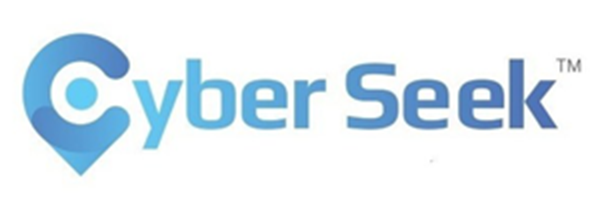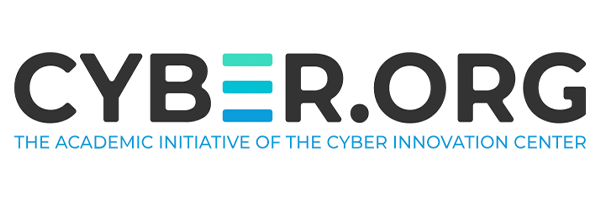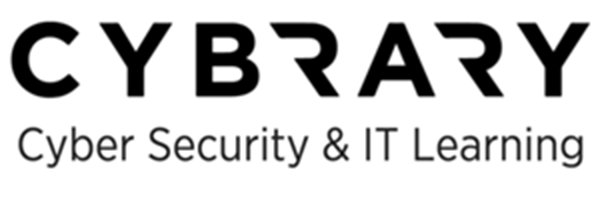Discover how to start building a career path in one of today’s most in-demand fields.
NWCyber can help by:
- Finding like-minded students or clubs at your school
- Providing cybersecurity teams to gain hands-on experience
- Helping you understand which classes to take in highschool
- Locating shadowing opportunities or internships
- Advising on local colleges with reputable programs
- Answering questions regarding future career possibilities

Did you know...
You can make a difference
Student Spotlight
Ethan Zhang, a senior student at Westview High School in Portland, Oregon, is the Co-founder and President of Youth Cyber Defender, a non-profit organization with a mission to promote cyber security education among middle school and high school students. In the past years, Youth Cyber Defender has hosted 30+ educational sessions for 200+ students across the country, invited industry experts for guest speeches, and organized site visits. In the past two years, Ethan led a team that applied cybersecurity skills to help secure cyber infrastructure in his community for seven small businesses with over 7,000 users. His team has successfully helped business owners discover and remediate dozens of critical security vulnerabilities that could have led to financial disasters from cyberattacks. He won the National Cyber Scholarship with Honor in 2023 and was awarded as one of 25 Prudential Emerging Visionaries in 2024. Ethan was invited as the student keynote speaker to the 2024 NICE K12 Cybersecurity Education Conference and hosted a breakout session on AI and Cybersecurity Education. Ethan holds a cybersecurity professional certification from GIAC (Global Information Assurance Certification).
Ethan and his team actively participate in various cybersecurity competitions such as CyberPatriot, picoCTF, and CyberStart America. They have advanced to CyberPatriot Platinum Division semifinalist multiple times. Team members have fostered several Cybersecurity Clubs in their schools. They have attended different training programs such as NW Cyber Camp, National Cyber Challenge Camp, and Youth Cybersecurity Leadership Camp.

Ethan Zhang, a senior student at Westview High School in Portland, Oregon, is the Co-founder and President of Youth Cyber Defender, a non-profit organization with a mission to promote cyber security education among middle school and high school students. In the past years, Youth Cyber Defender has hosted 30+ educational sessions for 200+ students across the country, invited industry experts for guest speeches, and organized site visits. In the past two years, Ethan led a team that applied cybersecurity skills to help secure cyber infrastructure in his community for seven small businesses with over 7,000 users. His team has successfully helped business owners discover and remediate dozens of critical security vulnerabilities that could have led to financial disasters from cyberattacks. He won the National Cyber Scholarship with Honor in 2023 and was awarded as one of 25 Prudential Emerging Visionaries in 2024. Ethan was invited as the student keynote speaker to the 2024 NICE K12 Cybersecurity Education Conference and hosted a breakout session on AI and Cybersecurity Education. Ethan holds a cybersecurity professional certification from GIAC (Global Information Assurance Certification).
Ethan and his team actively participate in various cybersecurity competitions such as CyberPatriot, picoCTF, and CyberStart America. They have advanced to CyberPatriot Platinum Division semifinalist multiple times. Team members have fostered several Cybersecurity Clubs in their schools. They have attended different training programs such as NW Cyber Camp, National Cyber Challenge Camp, and Youth Cybersecurity Leadership Camp.
We are here to help
Student FAQ
A cybersecurity career involves protecting systems, networks, and data from cyber threats. It encompasses various roles, such as security analysts who monitor for breaches, incident responders who manage and mitigate attacks, and penetration testers who evaluate system vulnerabilities. Cybersecurity professionals work in diverse environments, including government agencies, corporations, and non-profit organizations.
Start by exploring your interests within cybersecurity and researching different roles. Find like-minded students at your school or nearby schools through clubs such as CyberPatriot teams, which you can join to gain hands-on experience. Learning to code with Python or other computer languages increases your understanding of how the technology works. Taking technology-related courses and engaging in projects like building your own lab can also help you build valuable skills and connections in the field. Many organizations also offer free online courses and "Capture the Flag" competitions that can help you build foundational skills.
Here is a list of current teams:
• Washington County Composite Squadron, Hillsboro, OR
• Gorge Composite Squadron, Oregon Wing, Civil Air Patrol, Hood River, OR
• Aurora Composite Squadron, Aurora/Portland, OR
• Oregon Mathletics, Portland, OR
• Westview High School, Portland, OR
• Youth CyberDefender, Portland, OR
Other Cyber opportunities in Oregon/SW Washington:
NW CyberCamp
ChickTech
Blacks In Tech
2024 OC3
In high school, consider taking classes in computer science, mathematics, and information technology to build a solid foundation. In college, focus on courses related to cybersecurity fundamentals, ethical hacking, and programming languages. Specialized courses can further enhance your skills and knowledge in specific areas of interest.
There are numerous job roles in cybersecurity, including security analyst, penetration tester, cybersecurity engineer, and incident responder. Salaries can vary widely based on experience, education, and location. Entry-level positions typically start around $60,000 to $80,000, while specialized roles can earn significantly more, especially with experience and certifications.
Absolutely! Cybersecurity offers a wide range of opportunities for individuals with diverse interests and skills. Many positions allow you to work on projects that align with your passions, whether that’s ethical hacking, cybersecurity education, or developing security policies.
Absolutely! Cybersecurity is not just about coding and hacking. Many roles focus on communication, management, problem-solving, and even creativity. You could work in areas like policy development, risk assessment, incident response, project management, or user education. The field offers diverse opportunities, allowing you to find a role that aligns with your strengths and interests.
While many positions in cybersecurity prefer candidates with a degree, there are also many entry-level opportunities that require certifications or relevant experience. Some successful professionals in the field have pursued alternative pathways, such as boot camps, self-study, or internships.
Yes, building your own lab is an excellent way to demonstrate your initiative and hands-on skills. It shows potential employers that you are proactive and have practical experience, which can be valuable when applying for jobs or internships.
Yes, many organizations offer job shadowing and internship programs for students interested in cybersecurity. These opportunities allow you to gain real-world experience, learn from professionals, and explore different roles within the field.
In Oregon and SW Washington, several organizations and programs provide opportunities for high school students to explore cybersecurity careers through internships and job shadowing. Some of these include:
- NW Cyber Camp – This summer camp offers hands-on experience in cybersecurity for high school students. While not a job shadow program, it gives participants a chance to learn from professionals in the field and network with potential employers.
- Portland General Electric (PGE) – PGE often has internships and job shadow opportunities, particularly in IT and cybersecurity, for students interested in critical infrastructure protection.
- Bonneville Power Administration (BPA) – As part of the federal government, BPA offers internships in cybersecurity and IT fields, which may be available to high school students or recent graduates.
- Intel Corporation – Intel, headquartered in Oregon, has an internship program that may offer opportunities in cybersecurity and IT fields, focusing on students passionate about technology.
- Cybersecurity and IT Camps and Internships through Local Colleges – Community colleges like Portland Community College (PCC) and Clark College in Vancouver, WA, frequently offer cyber camps, workshops, and internships in partnership with local companies.
These organizations provide great starting points for internships or job shadowing to see if a cybersecurity career is a good fit. Additionally, you can reach out to local tech companies and utilities, as many offer customized programs for high school students.
Several community and 4 year colleges in Oregon & Washington have reputable cybersecurity programs, offering a range of degrees and certificates designed to prepare students for careers in cybersecurity and I.T.
Here are a few:
- Community Colleges: Affordable associate degrees and certifications (e.g., MHCC, PCC, Clark College).
- Portland State University: Bachelor’s in Cybersecurity focusing on ethical hacking and secure coding.
- University of Washington: Master’s in Cybersecurity Engineering and specialized training.
- Oregon State University: Online Bachelor's in Computer Science with a focus on cybersecurity.
While not always required, obtaining certifications can significantly enhance your employability and demonstrate your knowledge and skills to employers. Popular certifications include CompTIA Security+, Certified Ethical Hacker (CEH), and Certified Information Systems Security Professional (CISSP).
Capture the Flag (CTF) competitions are hands-on challenges that allow participants to practice their cybersecurity skills in a gamified environment. These competitions often involve solving puzzles, hacking into simulated systems, and collaborating with others, providing valuable experience and networking opportunities. Here are some CTFs to get you started:
Degree Preferred:
Cyber Instructor
Cryptographer
Cyber Defense Incident Responder
Cyber Forensics Expert
Cybersecurity Engineer
Multi-disciplined Language Analyst
IT Project Manager
Information Systems Security Manager
Software Developer
Cyber Operator
Information Assurance Analyst
Pen Tester
Threat and Warning Analyst
Chief Information Security Officer
Facility Security Officer
No Degree – Certs and Experience:
Cyber Crime Investigator
Technical Support Specialist
Vulnerability Assessment Analyst
System Administrator
System Testing and Evaluation Specialist
Knowledge Manager
Cyber Ops Planner
Cloud Architect
Parent FAQ
Absolutely! In Oregon and Washington, entry-level cybersecurity roles typically earn between $67,000 and $87,000 per year. Specialized positions can lead to even higher salaries. Cybersecurity is a rapidly growing field with a strong demand across industries, ensuring long-term job stability and numerous opportunities for advancement.
Yes! Cybersecurity offers many rewarding careers beyond the stereotype of hackers. Professionals work to defend against cyber threats and protect sensitive data. Roles include ethical hackers, security analysts, and forensic experts, all crucial for safeguarding companies and governments from cyber risks. The demand for these professionals is high, with projected job growth of 35% from 2021 to 2031.
Career options in cybersecurity include:
- Security Analyst: Monitors networks for breaches and responds to incidents.
- Penetration Tester: Simulates cyberattacks to identify vulnerabilities.
- Incident Responder: Handles security breaches and mitigates damage.
- Cryptographer: Works on encryption and data security.
- Security Consultant: Advises organizations on cybersecurity strategies.
Nationally, entry-level cybersecurity salaries typically range from $50,000 to $80,000. In Oregon and SW Washington, entry-level positions start at around $67,000 and can go up to $87,000. More experienced roles can earn significantly higher, especially in specialized areas.
Many colleges in Oregon and Washington offer cybersecurity programs, including:
- Community Colleges: Affordable associate degrees and certifications (e.g., MHCC, PCC, Clark College).
- Portland State University: Bachelor’s in Cybersecurity focusing on ethical hacking and secure coding.
- University of Washington: Master’s in Cybersecurity Engineering and specialized training.
- Oregon State University: Online Bachelor's in Computer Science with a focus on cybersecurity.
While a degree can enhance job prospects, many entry-level positions are available for those with certifications and experience. For example, cybersecurity professionals with a 2-year degree may earn around $50,000, while those with a 4-year degree can start at $67,000 or higher. Certifications and internships can also provide a stronger foundation.
Consider these factors:
- Interest in Technology: Do they enjoy problem-solving and working with computers?
- Adaptability: Are they willing to learn and adapt to new challenges?
- Attention to Detail: Are they detail-oriented and thorough in their work?
- Ethical Responsibility: Do they understand the importance of protecting sensitive information?
- Hands-on Experience: Encourage participation in cyber camps or clubs to explore their interest.












